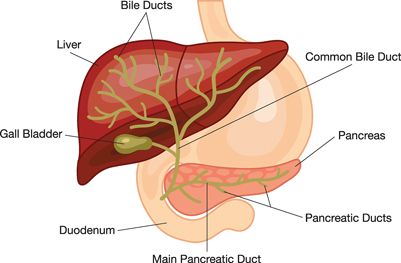ERCP

Endoscopic Retrograde Cholangiopancreatography (ERCP)
Endoscopic Retrograde Cholangiopancreatography (ERCP) is a specialized medical procedure specifically designed to diagnose and treat conditions affecting the bile ducts, gallbladder, pancreas, and liver. By integrating endoscopy and fluoroscopy, ERCP enables healthcare providers to visually assess and intervene in the biliary and pancreatic duct systems.
Throughout this procedure, a flexible endoscope is gently inserted through the mouth, passing through the esophagus and stomach into the duodenum. A small catheter is then meticulously guided into the bile or pancreatic ducts, followed by the injection of contrast dye to enhance imaging on X-rays. This process facilitates the identification of blockages, strictures, stones, tumors, or other abnormalities.
ERCP serves a dual purpose in both diagnosis and therapy. It is frequently employed to eliminate gallstones from the bile ducts, place stents to alleviate duct obstructions, or collect tissue biopsies for further analysis. Additionally, it proves beneficial in managing complications arising from gallbladder surgery or treating infections such as cholangitis.
Before the procedure, preparation involves fasting for several hours, and patients are typically provided with sedation to ensure comfort. While ERCP is generally considered safe, potential risks encompass pancreatitis, bleeding, infection, or perforation of the digestive tract. Although these complications are rare, prompt medical attention is imperative should they occur.
ERCP has evolved into a critical tool for managing biliary and pancreatic disorders, offering a minimally invasive alternative to traditional surgeries. Technological advancements, including high-definition endoscopes and therapeutic techniques, have further heightened its safety and efficacy.
This procedure is particularly advantageous for patients presenting with jaundice, unexplained abdominal pain, or abnormal imaging findings related to the pancreas or bile ducts. By integrating both diagnosis and treatment in a single session, ERCP assumes a pivotal role in modern gastroenterology, ensuring effective management of complex hepatobiliary conditions.
During the procedure:
- You will receive sedation to help you relax.
- An endoscope is inserted through your mouth, down your esophagus, and into your duodenum (the first part of the small intestine).
- A small tube is passed through the endoscope into the bile or pancreatic ducts.
- Contrast dye is injected, and X-rays are taken to visualize the ducts.
- If necessary, interventions such as stone removal, stent placement, or biopsies are performed.
The procedure typically takes 30 to 60 minutes, but it can take longer depending on the complexity of the case.
After the procedure:
- You will be monitored in a recovery area until the sedation wears off.
- You may experience mild abdominal discomfort or nausea.
- You will need someone to drive you home.
- You will be given post procedure instructions.
ERCP is typically performed when other less invasive imaging tests, such as ultrasound or CT scan, have identified a potential problem in the bile or pancreatic ducts, and therapeutic intervention is anticipated.

